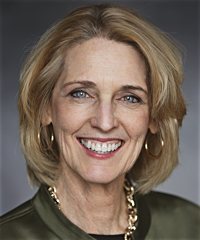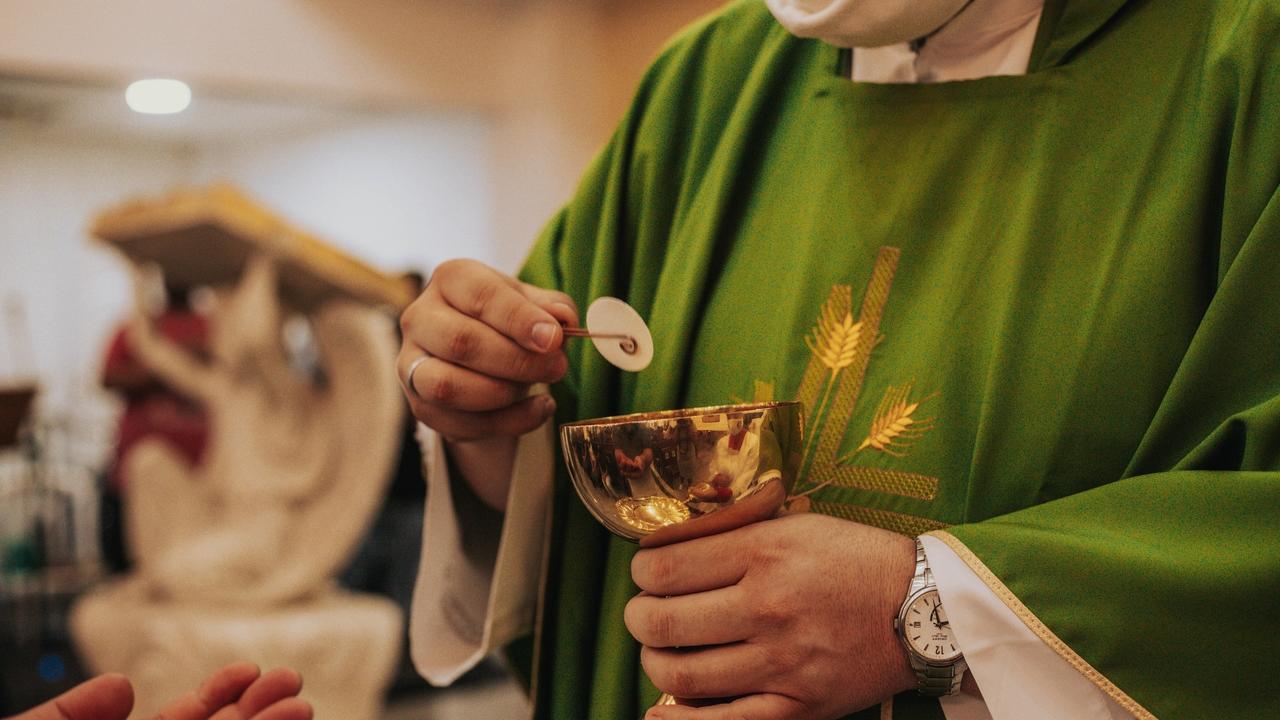by Kate Walsh Soucheray, Ed.D., M.A.T., M.A., LMFT
How do we get back to Mass safely in the middle of a pandemic? For Catholics, attending weekly Mass was an obligation, and due to COVID-19, that requirement for many was suspended until several factors were addressed, making it safer to return to potentially crowded spaces. Now that we are wearing masks, leaving space between attendees by leaving pews unfilled, and washing our hands before taking Holy Communion, it may seem safer to return to an experience we may have taken for granted. Perhaps we still saw attendance as mandatory, which may have created a bit of obligatory compliance.
Satisfying the Hunger
What those who have returned to Mass have likely found is that others who share the space with them at Holy Mass are those who are willing to enter the space, knowing there was risk involved, but it was a risk they had to take. There was a hunger to return to celebrate as community and to partake of the Eucharist. Watching Mass online or on television helped fulfill a part of what was missing. There was a deep hunger for the community gathering, the prayers recited in unison, and participation in the Eucharist. This was a risk they were willing to take. In many ways, we are like the early followers of Christ during the Apostolic Era of Christianity.
Mimicking Early Christians
The Apostolic Era is the roughly first 250 to 300 years of the Church. Immediately following Jesus’ Passion, Death, and Resurrection, his followers huddled in the upper room, waiting together for something. Exactly what that was, it seems they were unsure, but to face the world without Jesus left them frightened, panicky, and lost. We may feel like this as we face the unknowns created by the pandemic, the state of our country, and the instability of our world. We, too, may feel frightened, panicky, and lost. We also know we must gather together and pray the prayers together and celebrate the Holy Eucharist, just as Jesus showed them to do at the Last Supper.
The fright of the early followers dissipated with Pentecost, as the Holy Spirit came upon each one of them as a tongue of fire, filling them with His purpose and passion. As we gather at Mass, we too are seeking to be filled with the Holy Spirit. In fact, it is not uncommon for Catholics who previously viewed Mass attendance as an obligation to be overcome with tears as the Holy Spirit fills their hearts with His peace and His presence in the midst of the unknown.
It is Christ, the Risen One, that we seek. He is the One who can bring stability and security to our lives, even in the midst of unrest and uncertainty. As human beings, we seek security and assurance, exactly what this world is unable to provide at this time. It is only Christ who can fill our hearts with what we hunger for: His Real Presence in the Eucharist.
Finding Strength in the Eucharist
The Real Presence of Christ at the Eucharist is what sets us apart from our Christian brothers and sisters. He is not a symbol at the celebration of our Mass. He is really present and when we partake of His body, which has been transformed through the prayers of our priest, we become His presence in our broken, hurting world. Attendance at Mass is not an obligation, it is a privilege. We are witnessing this now as we reunite as Christians in the Holy Space and Holy Experience of the Mass.
About Kate Walsh Soucheray
 Kate is a licensed marriage and family therapist and works at Christian Heart Counseling in Stillwater. Kate attended St. Catherine University in the mid-1970s and earned a bachelor’s degree in elementary education and taught middle school social studies for seven years, until beginning her at-home time with children for 18 years. In the 1990s, Kate attended the St. Paul Seminary of the University of St. Thomas and earned a master’s degree in theology and received a certificate to teach high school. She then taught middle school and high school Religion. During that time, Kate earned a second master’s degree from Saint Mary’s University in marriage and family therapy and has been a therapist since 2011. In 2014, Kate went back to school for her doctorate in Educational Leadership, again at Saint Mary’s University, and graduated in October, 2019. Her dissertation topic was “Christian Counselors and Their Therapeutic Work with Multicultural Clients.” In addition to her therapy practice, Kate writes a monthly column for the Catholic Spirit, the Archdiocesan newspaper of Minneapolis and St. Paul. She also blogs for Catholic counselors and teachers, speaks to women’s groups, and leads retreats for women, couples, and families. For more information about her, please visit The Institute of Family Health and Well-Being..
Kate is a licensed marriage and family therapist and works at Christian Heart Counseling in Stillwater. Kate attended St. Catherine University in the mid-1970s and earned a bachelor’s degree in elementary education and taught middle school social studies for seven years, until beginning her at-home time with children for 18 years. In the 1990s, Kate attended the St. Paul Seminary of the University of St. Thomas and earned a master’s degree in theology and received a certificate to teach high school. She then taught middle school and high school Religion. During that time, Kate earned a second master’s degree from Saint Mary’s University in marriage and family therapy and has been a therapist since 2011. In 2014, Kate went back to school for her doctorate in Educational Leadership, again at Saint Mary’s University, and graduated in October, 2019. Her dissertation topic was “Christian Counselors and Their Therapeutic Work with Multicultural Clients.” In addition to her therapy practice, Kate writes a monthly column for the Catholic Spirit, the Archdiocesan newspaper of Minneapolis and St. Paul. She also blogs for Catholic counselors and teachers, speaks to women’s groups, and leads retreats for women, couples, and families. For more information about her, please visit The Institute of Family Health and Well-Being..
